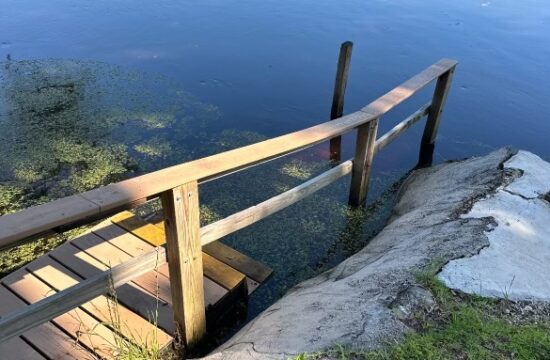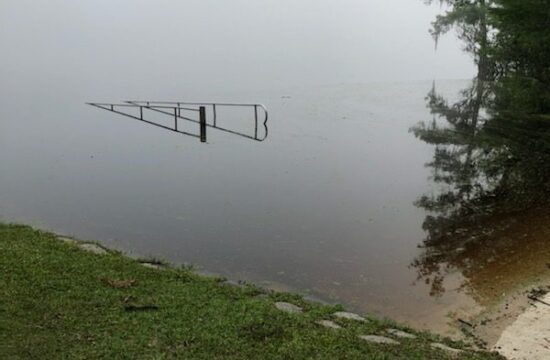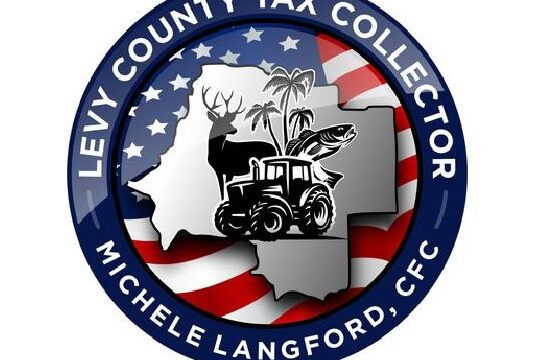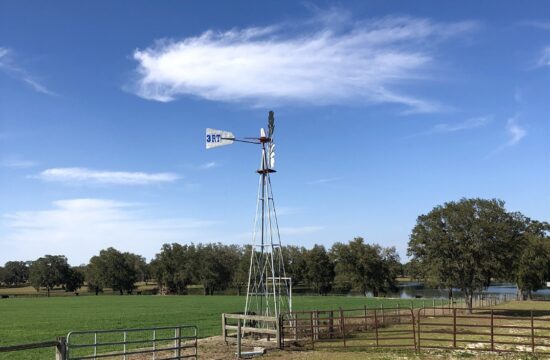By Terry Witt – Spotlight Senior Reporter
The Levy County Value Adjustment Board voted 3-2 Thursday to deny a request by Black Prong Equestrian Village to classify the entire 90-acre horse resort as being an agricultural operation that attracts agritourism guests with the facilities and programs it offers.
VAB serves as an appeals board when a taxpayer wants to challenge a decision by the property appraiser’s office. The board consists of County Commissioners Matt Brooks and Rock Meeks, School Board member Tammy Boyle, realtor Natalie Thomas, and businessman Skipper Henderson.
In this case, Black Prong said the property appraiser’s office was wrong to classify 15 acres of the resort as non-agricultural. The resort filed a petition seeking relief from the VAB. The resort asked the board to overturn the property appraiser’s decision.
VAB denied the request.
The three county elected officials on the board, Brooks, a county commissioner, and the VAB chairman, Meeks who is the county commission chairman, and Boyle, a school board member, sided with Property Appraiser Jason Whistler. Thomas, who is the business representative on the board, and Henderson who is co-chair and represents homesteaded residential property owners supported the taxpayer, which in this case was Black Prong Equestrian Village.
Black Prong officials said a bill passed unanimously by both houses of the Florida Legislature in 2022 encouraged farm operations to engage in agritourism and prohibited local governments from denying or revoking an agricultural classification “solely due to the conduct of agritourism activities on a bona fide farm operation.”
Brooks, Meeks, and Boyle took issue with Black Prong claiming that it was a bona fide agricultural operation under the state’s definitions of agriculture which include crop farming, raising animals, operating greenhouses, ranches, and tree and sod farms.
“In my opinion, the items that are on that 15 acres are not substantial agriculture classification or agricultural benefiting the public,” said Boyle.
The property appraiser’s office said the 15 acres is where the Black Prong’s pavilion, swimming pool, gym parking, food truck, and RV parking spaces are located. Those facilities are scattered around the 90 acres and are considered non-agricultural by the appraiser’s office.
“In other words, your Ag operation could operate very easily without this 15-acre, pavilion, swimming pool, gym, parking lot, food truck, and RV park,” said Randy Rutter, the interim property appraiser in the denial letter to Black Prong.
Thomas said she spent Wednesday calling Tallahassee state government officials to get a clearer understanding of what the Florida Legislature intended with it passed Florida Statute 570.84 defining agritourism this spring.
“I made calls to Tallahassee. What I got from them – they expected a lot of legal challenges because it’s so new and they question our authority as a government. From what I was told, the state is going to be the one that says what does or doesn’t happen and they were saying you can’t just go in and pluck out a (15 acre) piece of property,” Thomas said. “It passed unanimously in the House and Senate. What Skipper (Henderson) said yesterday was the intent of this (legislation).”
Henderson argued on Wednesday that the agritourism Legislation was intended to give farm operators an option for adding revenue sources to support their farms. He believes Black Prong was doing exactly what the Legislation intended when it added amenities like the pool pavilion, gym, and other facilities to attract more equestrian guests.
“The land it occupies shall be considered Ag in nature as long as the building structures of a facility are an integrated part of an agriculture operation,” Thomas said. “Enjoying the forest (Black Prong adjoins Goethe State Forest) is considered agricultural under agritourism. So, the fact that horses may not be there – certain things we view or also might not view as Ag – in the state’s eyes it doesn’t mean it’s not agritourism. Agritourism activity definitely means agriculture-related activity. That is consistent with a bona fide farm livestock operation or a working forest, which allows the general public to view or enjoy activities for recreational, entertainment, or for educational purposes and more. These activities include farming, ranching, historical, cultural, civic ceremonial training.”
Brooks said it’s clear that Black Prong has made a considerable investment in the resort and officials that testified before the board said the resort would not be economically viable without amenities like the pavilion and swimming pool.
“We’re hearing the business is not making money. It is moving in the right direction, but does that affect the nature of it being agriculture – so that’s been the struggle for me,” Brooks said.
“I looked at agricultural production. What are they producing? What they are taking to market? In my opinion, the law says farmers are having a tough time making money, so we’re going to allow these additional businesses to exist on the property to help make up some of the shortages, and also, it’s going to benefit the community because it can bring people in and educate them about what’s going on,” Brooks added. “This facility is completely out of the box. That’s what’s been difficult for me to wrap my mind around. What’s the product we’re taking to market?”
Black Prong Mayor Clayton Bratcher responded that Florida Statutes actually state that training of horses for the enjoyment and use of people is an agricultural product in Florida.
“That’s exactly what our facility produces,” he said. “Our guests that come there utilize every little piece of our property for their enjoyment.” But he said the guests also like to visit Williston and Bronson to shop and buy groceries.
Boyle said the long-range plans of Black Prong indicate that everything guests will need from food to lodging will be available on-site and there won’t be a need to travel to neighboring communities to dine or shop. She said the amenities Black Prong plans to build will cover all the needs of guests.
“These amenities are an integral part of our boarding and training operation,” Bratcher said. “Whether it affects our bottom line or not, we got to have them for people to come here.”
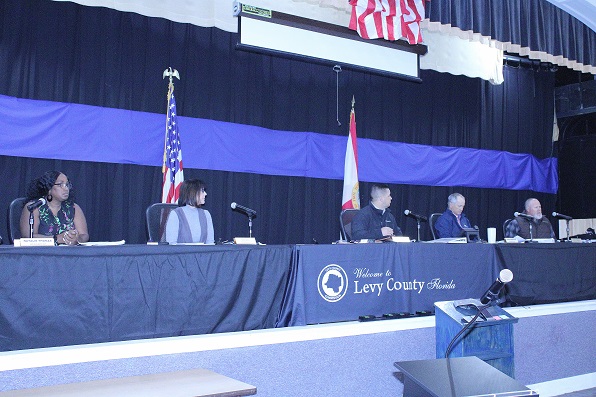
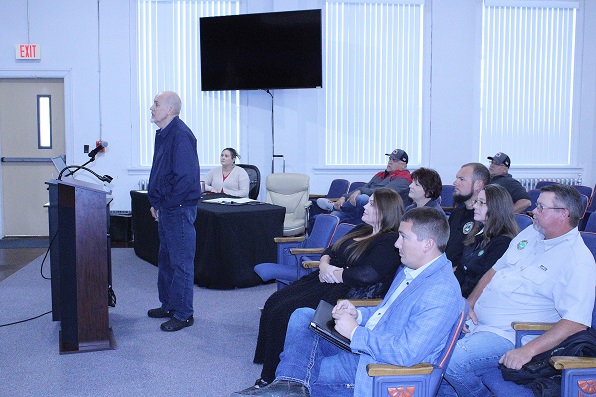
—————————-
Enterprise Reporting by Terry Witt October 20, 2022; Posted October 20, 2022








